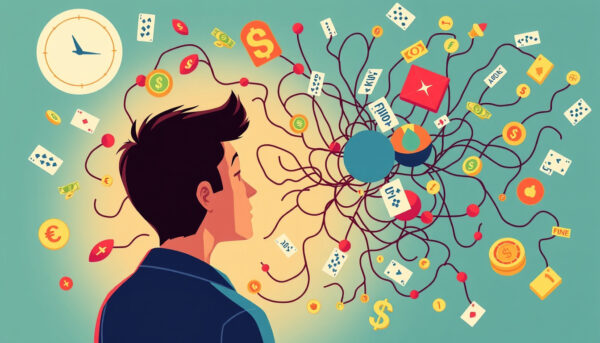Understanding the Risks: Why You Should Be Wary of Gambling Systems

In an era where gambling is increasingly mainstream, many people are drawn into the allure of quick riches offered by gambling systems. However, it’s essential to understand the inherent risks associated with these systems. The combination of psychological influences, marketing strategies, and the nature of gambling itself can lead individuals to make decisions that could result in significant financial and emotional distress.

The Allure of Gambling Systems
Gambling systems often promise increased chances of winning or reliable methods to beat the odds. Many gambling enthusiasts are enticed by these claims, believing they can gain a winning edge in games ranging from poker to sports betting. However, research suggests that these systems often rely on flawed logic or incomplete understanding of game mechanics.
For example, popular systems like the Martingale strategy, which advocates doubling bets after losses, can lead to substantial financial loss rather than guaranteed profits. The house always holds an advantage in gambling, and no system can change the mathematical realities of games of chance.
Psychological Factors at Play
Psychology plays a significant role in gambling behavior. The "illusion of control" is a common phenomenon, where players believe that their skills or decisions can influence random outcomes. This belief can drive gamblers to develop reliance on specific systems or strategies, causing them to overlook the randomness of luck-based games.
Additionally, cognitive biases, such as confirmation bias, can lead individuals to remember their wins while forgetting their losses, thereby reinforcing the idea that their gambling system is effective. This can create a cycle of continued investment and increased risk-taking.
Marketing Strategies and Vulnerability
The rise of digital marketing has transformed how gambling operators reach potential customers. Research has shown that the online gambling industry employs sophisticated marketing strategies that specifically target vulnerable populations, including young adults. Promotions often emphasize socializing and excitement, thereby enhancing the potential for excessive gambling behavior.
Moreover, the prevalence of targeted advertising across social media platforms has been linked to an increase in gambling participation, especially among those who are already at risk for problem gambling. Engaging with these marketing campaigns can lead individuals into a cycle of gambling that they may find difficult to escape.
The Consequences of Problem Gambling
Engaging in excessive gambling can lead to a host of negative outcomes. Financial instability is often the most apparent consequence, as individuals may find themselves in significant debt or facing bankruptcy. However, the emotional and psychological impacts are equally concerning. Problem gambling can lead to increased anxiety, depression, and even suicidal thoughts.
Moreover, the social consequences can extend beyond the individual, affecting relationships with family and friends. The stigma associated with gambling problems can deter individuals from seeking help, compounding the issue further.
A Safer Approach to Gambling
To mitigate the risks associated with gambling systems, several strategies can be adopted:
-
Educate Yourself: Understanding the odds and probability of games can help set realistic expectations. Familiarity with game mechanics fosters healthier engagement.
-
Set Limits: Establishing financial and time limits on gambling activities can reduce the risk of addiction or excessive spending. Stick to these limits strictly.
-
Take Breaks: Regular breaks during gambling sessions can help maintain perspective and minimize impulsive decisions driven by excitement or frustration.
-
Seek Help When Needed: If gambling becomes a problem, consider reaching out for professional help. Organizations specializing in addiction treatment can provide support and resources for recovery.
-
Be Wary of Systems: Understand that no gambling system is foolproof. Be cautious of claims promising guaranteed returns, as they often exploit gamblers’ hopes and emotions.
Conclusion
While gambling can be an entertaining pastime for many, the potential for risk should not be underestimated. Awareness of the psychological biases at play, the influence of marketing strategies, and the realities of gambling systems can empower individuals to engage in safer gambling practices. By taking proactive steps, it’s possible to enjoy gambling responsibly while minimizing potential harm. Remember, the goal should always be entertainment, not financial distress.
